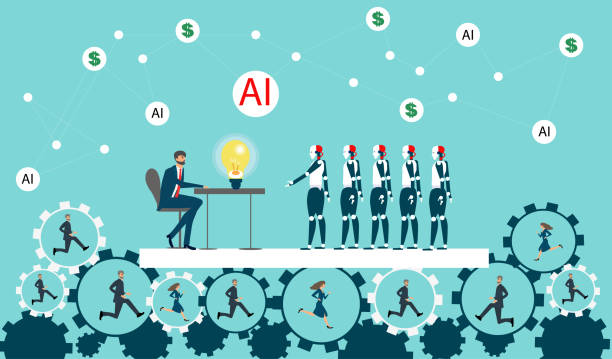Artificial Intelligence (AI) is no longer just a futuristic concept—it’s a powerful tool reshaping how small businesses operate today. From streamlining workflows to enhancing customer service, AI enables small business owners to compete more efficiently, make smarter decisions, and focus on growth.
Here’s a look at the key ways AI is transforming small business operations:
1. Automation of Routine Tasks
AI-powered tools can automate repetitive and time-consuming tasks such as:
- Invoicing and bookkeeping
- Inventory management
- Email marketing
- Appointment scheduling
By automating these functions, businesses save time, reduce errors, and increase productivity.
2. Smarter Customer Service with AI Chatbots
AI-driven chatbots provide 24/7 customer support, answering common questions instantly and routing complex queries to human agents. Benefits include:
- Reduced wait times
- Enhanced customer satisfaction
- Lower support costs
Even small e-commerce stores can now offer real-time assistance using platforms like ChatGPT or Intercom.
3. Improved Marketing Strategies
AI helps small businesses analyze customer behavior and create targeted marketing campaigns. With AI, you can:
- Segment audiences based on preferences
- Predict purchasing behavior
- Optimize ad spend
- Personalize email campaigns
This leads to better ROI and stronger customer engagement.
4. Data-Driven Decision Making
AI tools turn raw data into actionable insights. With predictive analytics, small business owners can:
- Forecast demand
- Manage inventory better
- Set optimal pricing
- Identify sales trends
This enables more informed and strategic decision-making.
5. Enhanced Cybersecurity
AI enhances security by:
- Detecting unusual network activity
- Preventing data breaches
- Offering real-time threat analysis
Many AI-based cybersecurity tools are affordable and scalable for small businesses.
6. Human Resource Optimization
AI is streamlining HR processes such as:
- Resume screening
- Employee onboarding
- Performance tracking
- Employee engagement analysis
This reduces administrative workload and helps in hiring and retaining the right talent.
7. Supply Chain and Inventory Management
AI can optimize supply chains by:
- Predicting demand and restock times
- Identifying delays or inefficiencies
- Managing logistics and delivery routes
This ensures better inventory control and reduces operational costs.
8. Personalized Customer Experiences
AI allows businesses to create highly personalized user experiences based on past behaviors, interests, and purchase history. This personalization can:
- Increase conversion rates
- Improve customer loyalty
- Enhance the shopping experience
Conclusion
AI is leveling the playing field for small businesses by offering powerful tools once only available to large corporations. Whether it’s automating daily tasks, enhancing customer interactions, or driving smarter business decisions, AI is revolutionizing how small businesses operate—making them faster, smarter, and more competitive.
Now is the time for small businesses to embrace AI, not as a replacement for human effort, but as a catalyst for innovation and growth.
